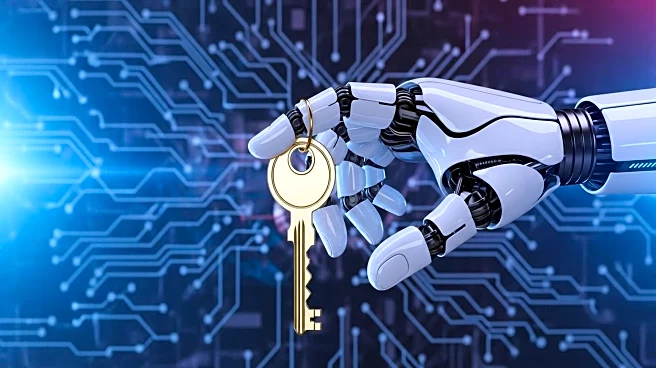What's Happening?
LinkedIn is set to globally launch its Hiring Assistant tool by the end of September, enhancing its AI capabilities in the recruiting sector. The tool, which has been in limited use for a year, assists recruiters with candidate sourcing and screening by using AI to ask clarification questions and offer recommendations. Concurrently, OpenAI is developing the OpenAI Jobs Platform, aimed at matching AI talent with employers. This platform is part of a broader trend of integrating AI into recruitment processes, promising to streamline hiring and improve candidate-employer matches.
Why It's Important?
The introduction of AI tools like LinkedIn's Hiring Assistant and OpenAI's Jobs Platform signifies a shift in the recruitment industry towards more automated and efficient processes. These tools can potentially reduce the time and resources spent on hiring, offering a competitive edge to companies that adopt them. However, there is also a concern about the reliance on AI in recruitment, as some job seekers may be wary of companies using generative AI in their hiring processes. The success of these tools could influence the future of recruitment, pushing more companies to integrate AI into their hiring strategies.
What's Next?
As LinkedIn and OpenAI roll out their AI recruitment tools, other companies in the industry may follow suit, leading to increased competition and innovation in AI-driven hiring solutions. Employers will need to balance the efficiency gains from AI with potential candidate concerns about privacy and fairness. The evolution of these tools will likely include enhancements in AI capabilities, such as better integration with existing HR systems and more personalized candidate interactions. The recruitment industry will be watching closely to see how these tools perform and how they are received by both employers and job seekers.










